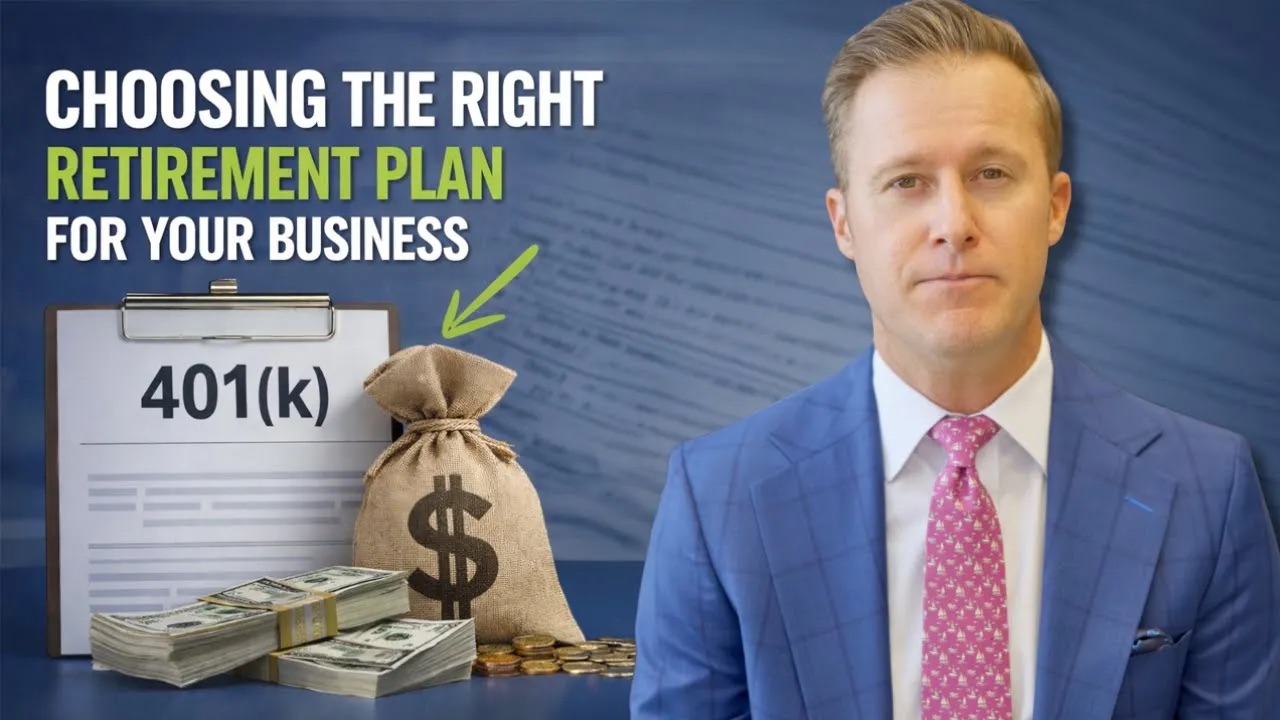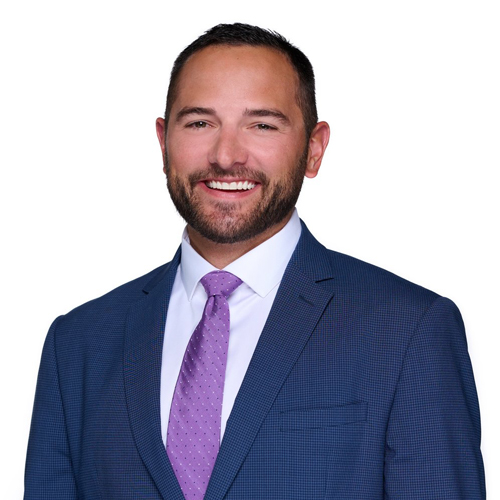When you think of the words ‘financial advisor,’ what comes to mind? Perhaps you envision a call from a fast-talking suit recommending purchasing a hot stock before it’s too late, or maybe an accountant-type poring over your budget and cutting out all those lattes you indulge in from the coffee shop. In reality, an advisor’s job isn’t to pinch pennies for you or to risk your hard-earned savings in single stocks. Instead, it’s to create a comprehensive picture of your lifelong financial situation and systematically build long-term wealth in a safe and tax-efficient manner.
Of course, there are a lot of nuances along the way, and it’s those little nuances that start making the most significant difference. Because the truth is, it’s not that difficult to just generate wealth. In fact, it’s difficult to go wrong with a portfolio consisting of diversified, low-cost ETFs combined with a buy-and-hold strategy.
In this article, we will examine exactly how a financial advisor adds value to your portfolio that you’d find difficulty doing on your own, making the advice they give worth well more than the fee they charge.
Behavior Guidance
FOMO: The Fear of Missing Out
"The stock market is a device for transferring money from the impatient to the patient."
Warren Buffett
FOMO has been cropping up more and more over the years in terms of the stock market. You read that stock ABC is rising through the ranks on the heels of good news. Quickly, you log in and purchase 500 shares, just in time for the stock to come crumbling down to reality. Rinse, wash, repeat across hundreds of thousands, perhaps millions of individuals across the United States each and every day buying and selling purely based on the hope they’ll make a quick buck. Instead, they lose big.
This could also be known as the Greater Fool Theory – people purchase overvalued assets with the understanding (or hope) that another will pay even more for it, which is how bubbles are formed. NFTs, anyone?
Risk Aversion
“The investor’s chief problem—and even his worst enemy—is likely to be himself.”
Benjamin Graham
Surprisingly enough, investors are much more likely to go out of their way to avoid loss than risk a gain. In fact, the pain of losing is psychologically twice as powerful as the pleasure of gaining, according to Amos Tversky’s and Daniel Kahmenan’s groundbreaking paper on risk aversion, ‘Advances in Prospect Theory.’ Consequently, investors may sell off assets that are losing value to prevent potential further losses. Just as bad, they may even fail to risk their savings in the first place, preferring to stick to bonds or other low-growth products that won’t propel them to their ultimate financial goals. To make it to retirement, where we won’t have an income for potentially thirty or more years, we need high-risk assets that will generate extensive compound gains to obtain the momentum necessary to eliminate (or at least significantly reduce) the possibility of running out of money.
We can easily look at someone else and say they’re behaving highly irrational – yet when we find ourselves in the same situation, we make the same errors. The scientific reason for this kind of behavior can be attributed to the decision-making centers of our brain during times of stress versus everyday life. Usually, decisions occur in the prefrontal cortex, the area of the brain responsible for complex behaviors like planning and moderating social behavior. When faced with risky decisions or stressful situations, our amygdala, the part of the brain responsible for processing emotions, takes over. As one might expect, our responses become less rational and more emotional, causing risk aversion to activate.
So, how can a financial advisor help? It may seem crass, but the answer is simple – an advisor doesn’t have the same emotional stake in the process as the money isn’t theirs. Now, that doesn’t mean the advisor will play it fast and loose with your hard-earned savings – quite the opposite, actually. It allows them to fully utilize their expertise without the emotional baggage associated with the nerve-wracking ups and downs of the market.
With a cool, calm head, an advisor can pull you back from the abyss of abysmal decision-making, such as cashing out your 401k because the stock market is crashing and getting hit with unexpected tax bills and early-withdrawal penalties. Yes, people do it all the time because they don’t have a financial advisor to tell them that’s not the best idea. Thus, an advisor’s first and foremost job is to help you grow your wealth via the prevention of major mistakes, and this growth is both measurable and sustainable.
As an investor, you may be thinking: where’s the proof?
That’s where the heroes of Vanguard come in. They conducted research to determine how exactly financial advisors provide ‘alpha,’ or additional value, to an advisor’s portfolio, and behavioral coaching was the clear winner out of the seven different ways financial advisors provide quantifiable value to a portfolio.
According to Vanguard, a financial advisor can add an extra 2.00% per year to an investor’s portfolio by providing discipline and guidance to stick to their non-emotional, logic-based financial plan. The trust an investor has in their advisor outweighs the panic-stricken headlines and doomsday scenarios espoused by talking heads whose primary goal is to sell headlines and airtime rather than financial success.
That 2.00% should easily pay your advisor’s fee, plus some!
Withdrawal Strategies, Asset Location & Rebalancing
"Spending money to show people how much money you have is the fastest way to have less money."
Morgan Housel, The Psychology of Money
An advisor’s job is as follows:
- To grow your wealth
- To protect your wealth
- To wind down your wealth
That last point is often overlooked. Without a flexible yet logical withdrawal strategy, you can exhaust your decades of savings and growth much faster than expected. Heavily tied to your withdrawal strategy is where your assets are physically located, i.e., your asset location. Are they spread between an IRA, a 401(K), and a brokerage account, with Roth variants thrown into the mix for maximum account diversification and tax flexibility? Or are they more or less consolidated into a single brokerage account and a tax-deferred 401(K)?
Investments have their own tax implications, as do investment accounts. Aligning investments with the most suitable account type can allow for less tax drag (meaning faster wealth generation) and an improved withdrawal strategy in retirement that can tackle such issues as staying in a lower tax bracket, handling Required Minimum Distributions, inflation, and a reduced chance of running out of money.
Then, there is the issue of rebalancing your assets across your various investment accounts, not just to maintain alignment with your desired risk tolerance and financial goals but also to take advantage of tax-loss harvesting opportunities. Rebalancing a single IRA may be relatively easy, but rebalancing across four or five different accounts can be quite the task.
Vanguard’s study shows that by combining these three methods, an advisor can bring in an additional net 1.94%.
Keeping Costs Low
"There is one investment truism that, if followed, can dependably increase your investment returns: Minimize your investment costs."
Burton G. Malkiel, The Elements of Investing: Easy Lessons for Every Investor
At nearly every step of the investing process stands a potential cost – a management fee, a trading fee, a commission, loads, brokerage fees, account fees. When you add them all together, they can take a sizeable chunk out of your earnings – earnings that would otherwise be generating compound gains for your retirement.
Vanguard’s seminal study shows that an advisor can typically add 0.30% to an investor’s portfolio by implementing cost-effective investment strategies.
In recent years, the cost of investing has seen a substantial decline. One indicator of this trend is the reduction in expense ratios across various investment products.
Let’s consider the data:
For equity mutual funds, the average expense ratio has decreased from 1.04% in 1996 to just 0.44% in 2022.
Equity ETFs have also become more cost-effective, with their peak simple average expense ratio of 0.61% in 2008 dropping to 0.46% by 2022.
However, there still remains a significant difference between expense ratios and other associated fees between individual investments; one can easily find ETFs with expense ratios well over the peak average of 0.61%.
High fees can easily remove hundreds of thousands, perhaps millions of dollars worth of gains that should be going into your pocket. They are, of course, inevitable, but an advisor can help you keep costs low across the board with investments that align with your financial and tax goals. If your portfolio is already burdened with high-fee assets, an advisor can find suitable replacements to help you keep your costs low.
Putting It All Together
"In investing, you get what you don't pay for."
Jack Bogle, Founder of Vanguard
Adding these figures up, we can realize a 4.24% net value to an investor’s profile via the prevention of emotional decision-making, asset location, rebalancing procedures, careful withdrawal strategies, and keeping costs low. One thing to keep in mind is that these figures can quickly change depending on the person’s financial situation, the advisor’s approach, market conditions, and even luck.
However, let’s say that you earn an extra 4.24% annually. What does that look like over the years? A million-dollar initial investment, without any additional contributions, would net you $514,760 over ten years. Over thirty years, you’d end up with an extra $2,475,000. This is on top of the gains you would presumably achieve without an advisor’s guidance.
In Conclusion
There aren’t many things in the modern world that capture the rapt attention of people as much as the stock market. It latches onto our emotions, our imaginations, and causes us to behave in ways we wouldn’t conceive of otherwise. So why attempt to go at it on your own?
Embarking on a DIY approach may be feasible for those with ambition and time. For most, however, professional advice can be the difference between a comfortable retirement and a prosperous one. If you’d prefer the latter, we’d be happy to sit down with you and either review or craft a customized financial plan that considers every possible factor. You can do so by clicking the button below!












